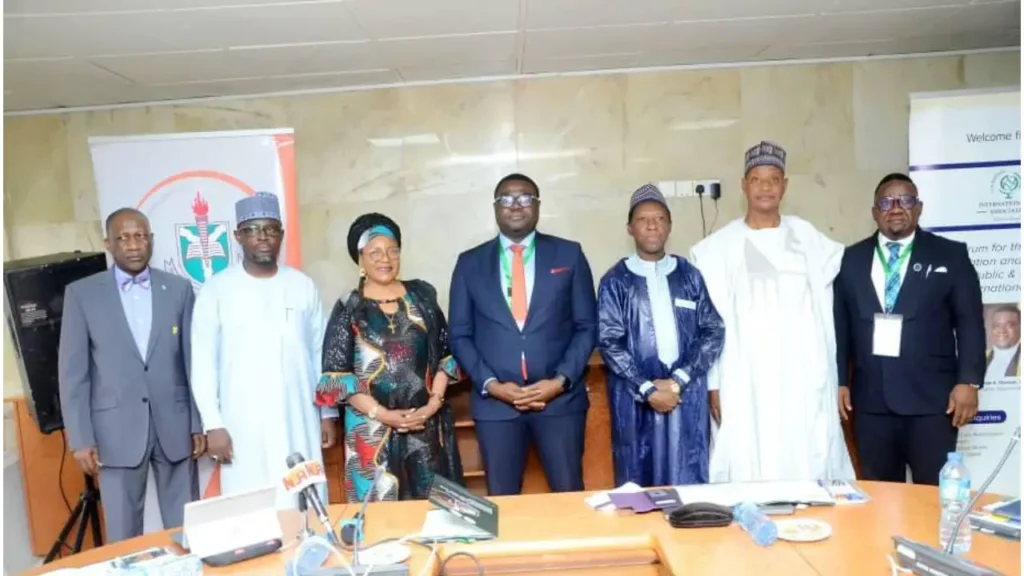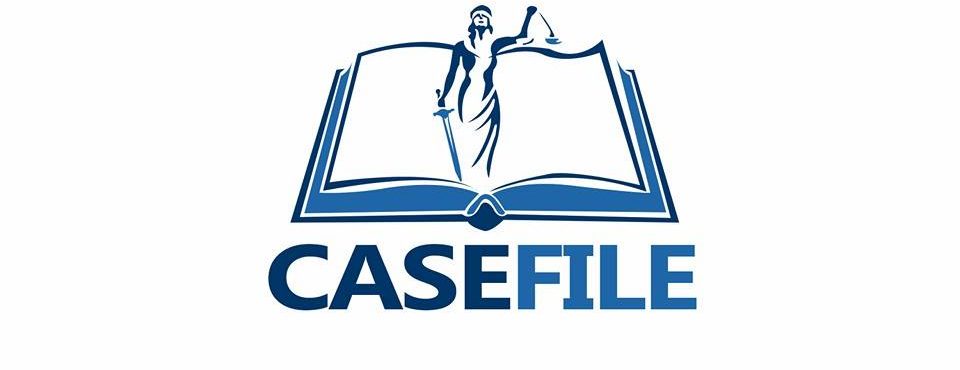Leading diplomats and international law experts have called for the urgent prioritisation of homegrown capacity development and training to fully accentuate Nigeria’s foreign policy interest and voice in international law making and diplomacy.

L-R: Bukhari Bello, Representative of Ambassador Musa Nuhu, Nigeria’s Permanent Representatives to Ecowas, Ministry of Foreign Affairs, Eghobamien-Mshelia, Prof. Olawuyi (SAN), Prof. Ladan, Ambassador Sarki and Mr. Osuya at the event
The recommendation was made at the high-level opening ceremony kickstarting the one-week Certificate of Advanced Studies in International Law and Diplomacy course organised by the Nigerian Institute of Advanced Legal Studies, NIALS, in partnership with the International Law Association (Nigerian Branch).
The ultimate objective of the course is to expose participants to the specialised knowledge and skillsets required for the practice of international law and diplomacy.
The opening ceremony featured compelling remarks by senior diplomats and experts including Ambassador Usman Sarki, Former Deputy Permanent Representative at the Permanent Mission of Nigeria to the United Nations, New York; Prof. Mohamed Tawfiq Ladan, the Director General of the Nigerian Institute of Advanced Legal Studies; Professor Damilola S. Olawuyi, SAN, President of the International Law Association Nigeria; Ambassador Musa Nuhu, Nigeria’s Permanent Representatives to ECOWAS, Ministry of Foreign Affairs; Eghobamien-Mshelia Esther, Vice Chair and Nigeria’s representative, UN Committee on Elimination of All Forms of Discrimination Against Women, CEDAW, Clement Osuya, Secretary General of the International Law Association, Nigeria, amongst other dignitaries.
While welcoming and congratulating participants for being selected for this high-level course, Professor Ladan, Director General of NIALS noted that “This interdisciplinary course is designed to help participants think critically about diplomatic and international legal issues in real-life contexts, while applying theory to practice and addressing some of the key questions facing the world today, and looking at contemporary practice and major events.”
On his part, the Chairman of the occasion, Ambassador Usman Sarki stated that “For Nigeria to be a leader and also an effective member of the international community especially in such fora as ECOWAS, the African Union, the United Nations etc, her public diplomacy and methodologies of engagement must be grounded firmly on the astute grasp of international law and international institutional arrangements.
“Knowledge of the relevant aspects of international law and practical diplomacy will go a long way in shaping our approaches to global governance and challenges, as well as the fine-tuning of our process of engagement with other partners and stakeholders.”
Ambassador Sarki commended NIALS and the ILA “for putting together this training package which should prove highly significant in the formation of the next cadre of experts in international law and diplomacy who would serve their country professionally and in the best of traditions.”
On his part, the President of the ILA, Nigeria, Professor Damilola Olawuyi, a Senior Advocate of Nigeria and Professor of International Law, who is also an Independent Expert on the United Nations Working Group on Business and Human Rights, Switzerland, noted that for many years, international law has been largely shaped by western narratives.
He noted that “Reclaiming the African voice in international law and diplomacy requires homegrown capacity development programs that expose the next generation to the art and craft of international law and diplomacy.
“A course like this provides a chance to develop and maintain a steady track of international law scholars and diplomats from Nigeria, for Africa and for the world.”
While commending the Director General of NIALS for providing such an innovative and inspiring platform for advanced studies in international law and diplomacy, Professor Olawuyi called on all participants to “fully immerse themselves in the opportunities provided by the course.
”The one-week course will cover contemporary themes in public and private international law, taught by leading experts, including modules on artificial intellegence and new technologies, international human rights and humanitarian law, international criminal law, international energy and petroleum transactions, climate change and sustainable development, conflict resolution, international commercial arbitration, AfCTA and international economic integration, as well as ethics and skillsets for international diplomacy, amongst others.
Established in 1979, NIALS is the apex legal research and training institute in Nigeria, while the International Law Association, ILA, was established in 1873, with the objective and mandate to promote “the study, clarification, and development of international law, both public and private, and the furtherance of international understanding and respect for international law.”
The Nigerian Branch of the ILA regularly hosts innovative lectures, seminars, conferences, and other capacity development programs to advance the study and understanding of international law in Nigeria.
To learn more about the ILA, its activities, and events visit http://www.ila-hq.org


